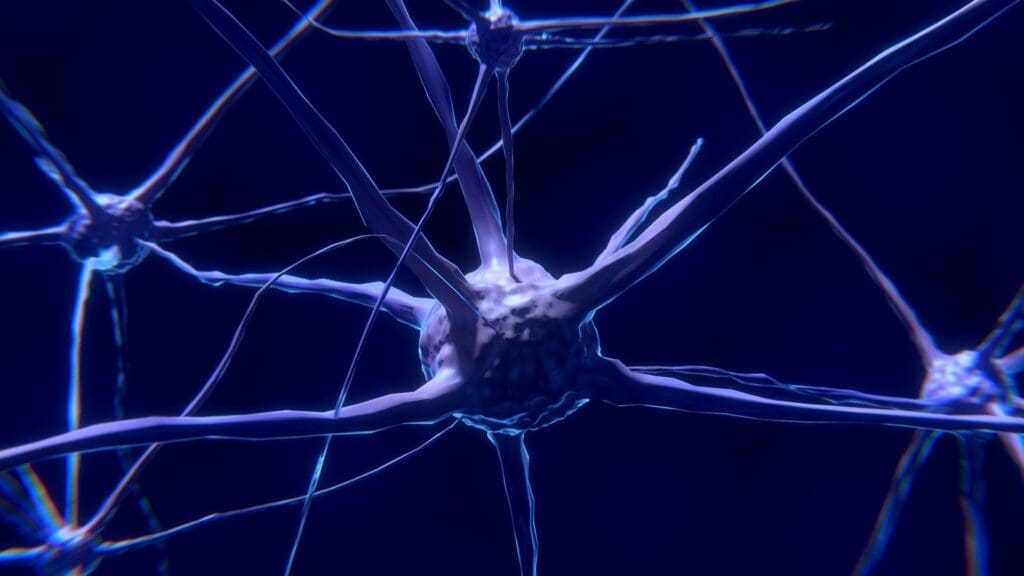LMU researchers enable PET detection of synapse loss in multiple sclerosis
In Germany, around 250,000 people suffer from multiple sclerosis, an autoimmune disease in which the immune system attacks structures of the central nervous system. These attacks also affect the gray matter in the brain, which consists of nerve cell bodies and synapses and acts as a central processing center. Until now, there was no reliable method to detect pathological lesions in this gray matter. Researchers at LMU Klinikum have now demonstrated for the first time that positron emission tomography can image synapse loss in the lesions of the cerebral cortex.
In the long term, the researchers, led by Matthias Brendel from the Department of Nuclear Medicine and Martin Kerschensteiner from the Institute of Clinical Neuroimmunology, aim to further develop the method in such a way that it enables therapy control.
In multiple sclerosis, the destruction of the nerve sheaths and the nerve cells themselves leads to a variety of symptoms that can impair all functions of the brain and spinal cord. These include visual disturbances such as blurred vision, double vision or visual field defects, sensory complaints such as tingling, numbness or pins and needles in limbs, muscle weakness, unsteady gait, spasticity, cramps, severe fatigability after low exertion, coordination disorders, dizziness, bladder and bowel problems such as urination, incontinence or constipation, sexual dysfunctions and cognitive impairments such as concentration and memory disorders, depression or Mood.

Recent studies underline that changes in gray matter are largely responsible for the progression of the disease, especially for permanent disabilities, cognitive deficits and persistent exhaustion. Such lesions also predict the risk of worsening and the transition from relapsing to continuously progressive. However, conventional magnetic resonance imaging fails to visualize most of these changes.
Positron emission tomography could provide a remedy here if a suitable protein of the nerve cells is identified that can be detected and allows conclusions to be drawn about the density of neurons and synapses. In experiments, the team first validated the protein SV2A as a marker for synapse density in multiple sclerosis. The researchers then injected mice with MS-like cerebral corticitis with a weakly radioactive substance that binds specifically to SV2A. The signal was recorded by tomography and compared with established methods for synapse density. The results showed a high level of agreement, which was confirmed in a follow-up study with about 30 patients.
The overarching goal is to target therapies by detecting high-risk patients early and treating them with tailored interventions to prevent progression. As a next step, the researchers are planning long-term studies to test whether a single examination can predict the long-term course of the disease.
Original Paper:
Ullrich Gavilanes EM, Bartos LM, Gernert JA, Carral CA, Ruiz Navarro D, Havla J, Gerdes LA, GnûÑrich JS, Kunze LH, Dorneich JS, Pakula V, Tagnin L, Zimmermann H, Seelos K, Franzmeier N, Frontzkowski L, Pedrosa de Barros N, Ribbens A, Zwergal RM, Zwergal A, Vollmar C, Remi J, Picon C, Reynolds R, Merkler D, Wattjes MP, Kû¥mpfel T, Brendel M, Kerschensteiner M. SV2A-PET imaging uncovers cortical synapse loss in multiple sclerosis. Sci Transl Med. 2025 Oct; 17(818):eadt5585.
doi: 10.1126/scitranslmed.adt5585. Epub 2025 Oct 1. PMID: 41032626.
PREVIEW: The The German Congress for Laboratory Medicine (DKLM) 2025 promises exciting insights into the interface between science and clinical practice. Under the motto “Science for Precision Medicine”, the German Society for Clinical Chemistry and Laboratory Medicine (DGKL) and the Umbrella Association for Technologists and Analysts in Medicine Germany (DVTA) Experts from research, clinics and industry are invited to meet on 23 and 24 October at the Congress Center Leipzig (CCL). The two-day event is aimed at laboratory physicians, biomedical analysts and decision-makers to discuss current advances in diagnostics and strengthen networks. The ceremonial opening of the congress will take place on 22 October with the presentation of the MedLabAwards in the Salles de Pologne.
Editor: X-Press Journalistenbû¥ro GbR
Gender Notice. The personal designations used in this text always refer equally to female, male and diverse persons. Double/triple naming and gendered designations are used for better readability. ected.




